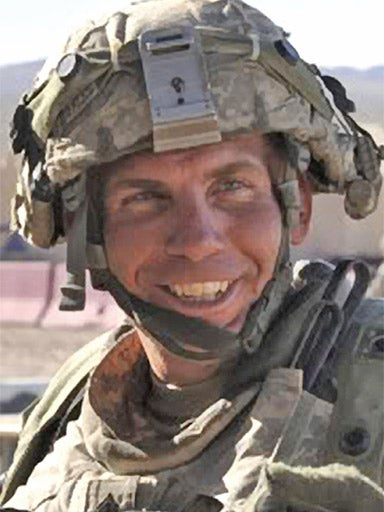Afghans to take stand in soldier's war crimes hearing

Inside the small wood-paneled courtroom where witnesses have begun to narrate a chilling account of the massacre of 16 Afghan civilians in March, there is a grieving Army wife sitting in the front row, poker-faced prosecutors and a handful of soldiers following the proceedings raptly from the gallery.
Conspicuously absent in the first two days of the evidentiary hearing against Army Staff Sgt. Robert Bales are any Afghans.
As they read the charges, the judge and lead prosecutor struggled to pronounce the names of the nine children and seven adults who were killed. No photos of the slain villagers have been displayed. Nothing has been said about the lives cut short the morning of March 11, when Bales allegedly stormed into homes near his base before dawn and opened fire indiscriminately.
That will change later in the week as the focus of the hearing shifts 12 1/2 hours to Afghanistan, where survivors and relatives of the victims are expected to testify by video from a military base in Kandahar. Starting Friday, the hearings will begin at 7 p.m. at this Army base in Washington State to accommodate Afghan witnesses who are believed to be central to the prosecution's case.
The Article 32 hearing is the military equivalent of a grand jury proceeding. At the conclusion of the two-week hearing, the military judge will rule on whether there is enough evidence for a court martial, which could carry the death penalty if Bales is convicted.
The Afghans' testimony about the massacre in Panjwai district of Kandahar Province will distinguish the hearing from other recent U.S. war crimes proceedings.
The prosecution says that 17 Afghans have said they are willing to testify via video, although prosecutors have not described the kind of testimony they expected to elicit.
Victims and local witnesses were largely unavailable in other high-profile cases, including the massacre of 24 unarmed Iraqis in Haditha in November 2005 and a string of shootings in the Maywand District of Kandahar in 2010 by rogue U.S. soldiers who became known as the "Kill Team." Prosecutors struggled to get convictions in those cases, outcomes that undermined U.S. policy in both countries.
Lt. Col. Joseph Morse, the lead prosecutor in the Bales case, noted Monday that investigators faced major obstacles in assembling the case. For instance, security concerns kept them from visiting the shooting sites for a month.
But they have gathered substantial evidence, including accounts from comrades of Bales who testified that he made incriminating comments when he returned to the base that morning. The prosecution also says a DNA sample taken from blood spatter on Bales's pants that morning matches a blood sample from one of the victims.
Bales' lead attorney, John Henry Browne, the flamboyant Seattle lawyer who became renowned defending serial killer Ted Bundy, is en route to Afghanistan, where he will cross-examine witnesses in person as part of the proceedings.
Mullah Baran, a brother of one of the Panjwai victims, Mohamed Daoud, said he was eager to travel to the United States to testify in person.
"We have got our passports, but nothing has happened," Baran, who is raising his brother's two young sons, said in a recent phone interview.
Prosecutors did not address why the Afghans were not testifying in person, except to say that the rules for the proceeding allowed remote testimony.
Shortly after the slayings, relatives of the victims met with Afghan President Hamid Karzai in Kandahar. In promising justice, Karzai seemed to suggest the possibility that more than one soldier was involved in the massacre, according to Baran and others who attended the session.
" 'I will bring the murderers to justice, if it is one soldier or five soldiers,' " Baran recalled Karzai saying. " 'I will ask for the death penalty because he or they are the murderers of our innocent people.' "
But no evidence has emerged implicating anyone else in the shootings.
- - -
Washington Post special correspondent Javed Hamdard in Kabul contributed to this report.
Join our commenting forum
Join thought-provoking conversations, follow other Independent readers and see their replies
Comments
Bookmark popover
Removed from bookmarks